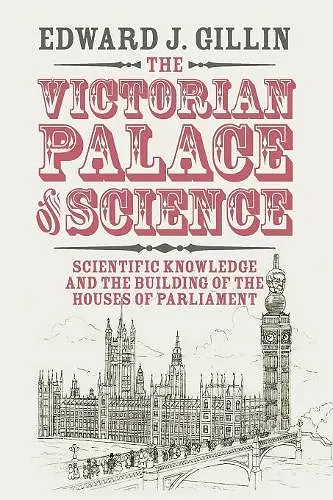The Victorian Palace of Science
Scientific Knowledge and the Building of the Houses of Parliament
Format:Paperback
Publisher:Cambridge University Press
Published:13th Jun '19
Currently unavailable, and unfortunately no date known when it will be back
This paperback is available in another edition too:
- Hardback£90.00(9781108419666)

Edward J. Gillin explores the extraordinary role of scientific knowledge in the building of the Houses of Parliament in Victorian Britain.
Edward J. Gillin provides a dramatic account of how the building of the Houses of Parliament involved the use of radically new science and how, while under construction, Parliament became a laboratory and place of scientific experiment. This book will be of value to readers interested in Victorian science, architecture, and politics.The Palace of Westminster, home to Britain's Houses of Parliament, is one of the most studied buildings in the world. What is less well known is that while Parliament was primarily a political building, when built between 1834 and 1860, it was also a place of scientific activity. The construction of Britain's legislature presents an extraordinary story in which politicians and officials laboured to make their new Parliament the most radical, modern building of its time by using the very latest scientific knowledge. Experimentalists employed the House of Commons as a chemistry laboratory, geologists argued over the Palace's stone, natural philosophers hung meat around the building to measure air purity, and mathematicians schemed to make Parliament the first public space where every room would have electrically-controlled time. Through such dramatic projects, Edward J. Gillin redefines our understanding of the Palace of Westminster and explores the politically troublesome character of Victorian science.
'This is in an important intervention in architectural history, and a successful challenge to histories of the Palace of Westminster, and architectural histories more generally, that are preoccupied with aesthetics and style. It is also a significant contribution to the history of science, not just because of the new story it tells, but in the way it expands on the work of Joe Bord to show how contested notions of science permeated governing approaches during the age of reform.' Martin Spychal, Parliamentary History
ISBN: 9781108411615
Dimensions: 229mm x 151mm x 17mm
Weight: 400g
341 pages